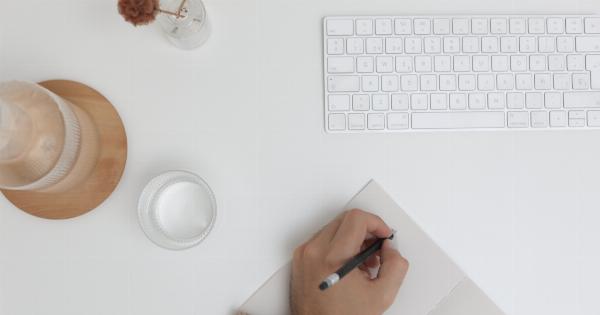In this digital age, tablets have become an essential part of our lives. We rely on them for entertainment, communication, and work. However, using a tablet in bed can have negative effects on our health and well-being.
In this article, we will explore the various ways in which using a tablet in bed can impact our sleep, eyes, posture, and overall quality of life.
1. Disrupted Sleep Patterns
Using a tablet in bed, particularly before sleep, can disrupt our sleep patterns. The blue light emitted by the tablet screen can suppress the production of melatonin, a hormone that regulates sleep.
This can result in difficulty falling asleep and poor sleep quality.
2. Increased Risk of Insomnia
The constant stimulation provided by a tablet can make it more difficult to unwind and relax before sleep. Engaging with digital content can be mentally stimulating, making it harder for our minds to calm down and prepare for sleep.
This can lead to insomnia and other sleep disorders.
3. Eye Strain
Staring at a tablet screen for extended periods can cause eye strain. The small size of the screen often requires us to strain our eyes to read or view content. This can result in dry eyes, blurred vision, and headaches.
4. Digital Eye Fatigue
Using a tablet in bed exposes our eyes to high-energy blue light for prolonged periods. This increases the risk of developing digital eye fatigue, also known as computer vision syndrome.
Symptoms may include eye discomfort, redness, irritation, and difficulty focusing on distant objects.
5. Neck and Back Pain
Using a tablet in bed often involves hunching over or adopting awkward postures that can strain our neck and back muscles. This can result in chronic neck and upper back pain, leading to discomfort and reduced mobility.
6. Poor Posture
Tablet use in bed can contribute to poor posture. We tend to slouch or lie down in unnatural positions, putting strain on our spine and back. Over time, this can lead to postural imbalances, muscle imbalances, and chronic pain.
7. Decreased Productivity
Using a tablet in bed can negatively impact our productivity. Instead of using our bed as a place of rest and relaxation, it becomes associated with work and constant connectivity.
This can make it difficult to disconnect from work and fully unwind, leading to decreased productivity in the long run.
8. Reduced Sleep Quality
Using a tablet in bed can decrease the overall quality of our sleep. The mental stimulation and engagement with digital content can make it harder for our minds to transition into a state of deep relaxation.
This can result in fragmented sleep and a feeling of not being fully rested in the morning.
9. Social Disconnection
Using a tablet in bed can disconnect us from our social surroundings. Instead of engaging with our loved ones or partners, we may find ourselves immersed in the digital world.
This can hinder genuine connection and communication, leading to a sense of isolation and loneliness.
10. Psychological Impact
Using a tablet in bed can have a negative psychological impact on individuals. The constant exposure to social media and digital content can increase anxiety, promote comparison, and lead to feelings of inadequacy or depression.
It can also disrupt our ability to detach from technology and enjoy simple pleasures.
As we can see, using a tablet in bed can have several negative effects on our health and well-being.
From disrupted sleep patterns to eye strain, neck and back pain to decreased productivity, the drawbacks of tablet use in bed outweigh the convenience it offers. It is important to establish healthy boundaries and prioritize rest and relaxation in the bedroom to maintain a balanced and fulfilling lifestyle.































